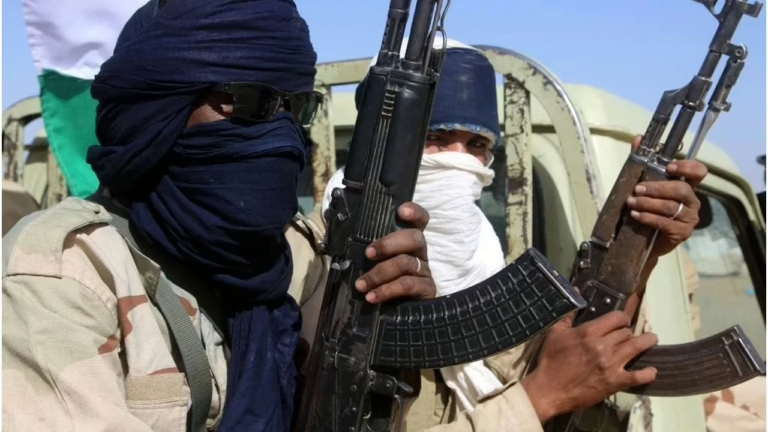The Katsina State Government has disclosed that bandit groups have presented a set of demands as part of ongoing peace negotiations, which include the establishment of educational institutions, government-unveils-stricter-visa-rules-stopping-care-visa-and-increasing-salary-for-threshold-for-skilled-workers/” title=”UK … Tightens Visa Rules: Care Visa Abolished & Skilled Worker Salary Threshold Raised”>healthcare facilities, and designated grazing areas.
In regions plagued by insecurity, a persistent debate revolves around whether to prioritize dialogue and mediation or to rely on military action when confronting banditry.
Following a recent peace dialogue, the Katsina State Government clarified: “The security-summit-end-killings/” title=”… Summit Unites to End the Violence Plaguing Benue”>peace initiative with the militants was not initiated by the government but was a community-driven effort.”
“Local village authorities engaged directly with repentant armed groups, culminating in peace accords across several local government areas such as Dan Musa, Jibiya, Batsari, Kankara, Kurfi, and Musawa.”
Nevertheless, Nasiru Mu’azu, the State Commissioner for Security, confirmed in an interview with the BBC that the bandits have put forward substantial requests.
Among these are the building of schools, hospitals, and support for livestock farming activities.
Experts on Nigerian security issues have frequently attributed the surge in banditry to inadequate infrastructure and the erosion of law enforcement in rural zones.
During the Katsina stakeholders’ forum, the commissioner highlighted systemic injustice as a major contributor to the escalation of cattle theft and kidnappings for ransom.
Despite the government’s official reluctance to engage directly with bandits, the commissioner admitted that the failure of the state’s amnesty program has exacerbated the security crisis.
“He detailed how gun-related violence expanded from affecting five local government areas between 2011 and 2015 to engulfing 25 areas from 2015 to 2023, largely due to the breakdown of the amnesty initiative,” the post-meeting statement noted.
Kabiru Adamu, a Nigerian security analyst, believes the Katsina Government’s approach could be instrumental in mitigating the state’s deteriorating security landscape.
“A fundamental cause of the armed conflict is the sense of marginalization felt by some perpetrators. Without addressing this grievance, sustainable peace remains elusive,” Adamu explained.
However, he cautioned against blanket support for all armed individuals:
“It is essential to distinguish those genuinely seeking rehabilitation from those who have adopted crime as a livelihood. Supporting individuals involved in theft and terrorizing communities risks encouraging further lawlessness,” he emphasized.
A security report by Beacon Consulting, a Nigerian research firm, revealed that in the first quarter of 2025, Katsina experienced 247 violent incidents resulting in 341 deaths and 495 kidnappings.
In response, the Katsina State Government announced in July a new initiative aimed at transforming the mindset of former gunmen who have surrendered their weapons.
This program will offer literacy education and vocational training to facilitate their reintegration into society.
The State’s Adult Education Agency has been assigned to design and implement this rehabilitation scheme.
Participants who lay down their arms will have access to both contemporary and Islamic educational curricula, alongside lessons on the repercussions of violence, homicide, and cycles of revenge.
Earlier this week, a high-level government meeting was convened to tackle the ongoing security challenges. The State Commissioner for Security updated stakeholders on the situation and confirmed plans to accommodate some of the bandits’ demands as part of efforts to achieve lasting peace.

















